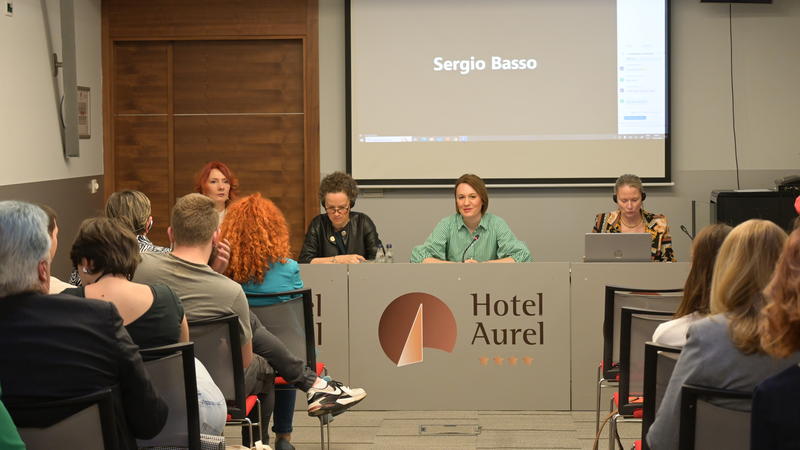
Overview
Empowering disadvantaged people with digital skills
As the digital transformation continues at its precipitous rate, many people struggle to maintain or acquire the necessary skills to remain successfully employed, affecting some people more disproportionately than others. Widening socio-economic inequalities are among the key drivers of unemployment and migratory pressure that can undermine ongoing efforts towards greater economic convergence, posing an increasing threat to social cohesion and stability in the OSCE participating States and can lead to instability and conflict.
Through the Organization’s extensive presence in the field, robust partner networks, and engagement with civil society, the OSCE is working to empower disadvantaged people, especially women and youth, to become entrepreneurs, upskilling them to compete in the ever-evolving job market and helping participating States create systems to support entrepreneurship.

Narrowing Socio-Economic Disparities
Our work
Our thematic and programmatic tasks
The OSCE participating States have committed to rethink development towards more inclusive and sustainable approaches, by promoting human capital development through quality education and lifelong learning, ensuring equitable working conditions and economic empowerment, and supporting effective legal migration policies and labour mobility. The Office of the Co-ordinator supports the States with the implementation of these commitments by:
- promoting upskilling and reskilling of the labour force to counteract the adverse consequences of digitalization on the quality and quantity of jobs;
- providing digital upskilling and business training to entrepreneurs, especially women and youth.
- supporting an eco-system for innovative business models, with special attention on social and green enterprises; and
- enhancing effective, comprehensive and fact-based legal migration policies.
The Office fosters knowledge transfer and offers capacity development to improve the understanding of relevant challenges and possible ways to address them. It also facilitates a policy-relevant dialogue to promote reforms and enable legal and operational frameworks, and promotes bilateral and regional co-operation as an essential method to address global challenges. In all its actions, the Office pays special attention to groups at risk of marginalization, such as women, youth, migrants and ethnic minorities.
Featured
Activities, news and other highlights

Changing narratives on women’s entrepreneurship in Montenegro: OSCE presents communication strategy in Podgorica

Young Developers and Entrepreneurs to Advance Start-Ups (YDEAS) – Phase 2
Resources
Official OSCE documents, publications and other manually selected resources

